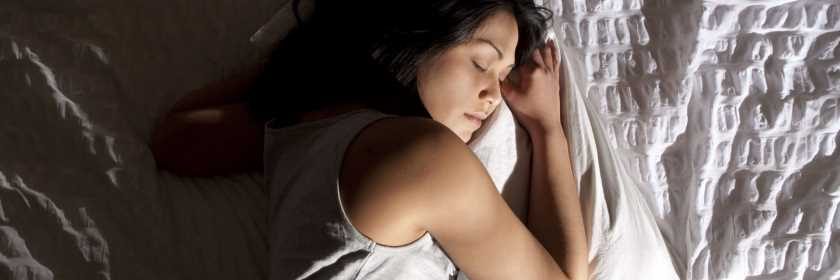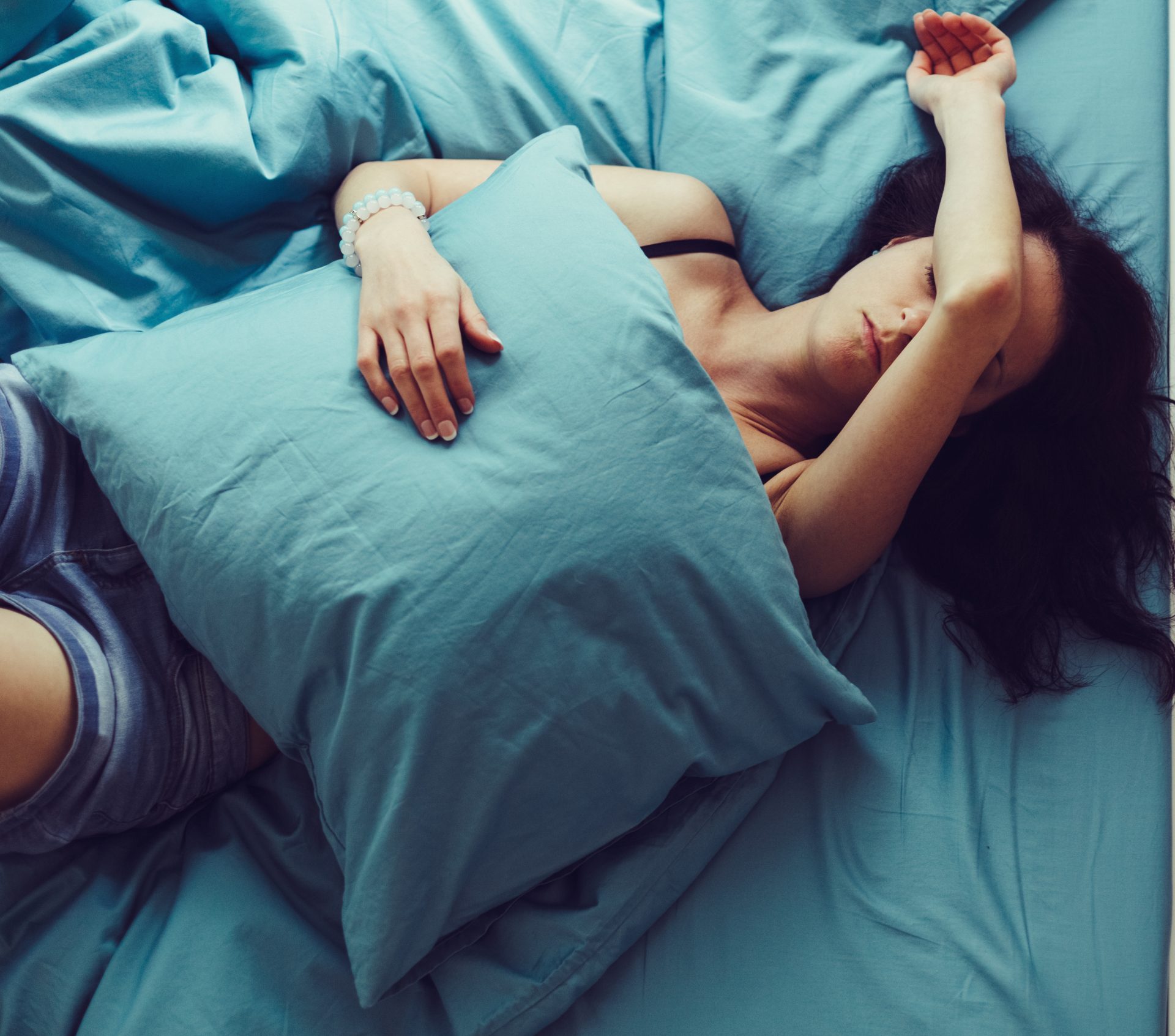5 sleep myths you need to forget you ever heard

This January, we’re on the search for quick, accessible hacks to kickstart 2023 in the strongest way possible. Today’s sleep kickstarter: 5 sleep myths to forget this year.
Ah, sleep. As we get older, a good night’s sleep really does feel like the holy grail. When we’re well rested, we feel energised, alert and ready to take on the day – but how often does this really happen? More often than not, we’re grappling with not enough or bad quality sleep. Despite being one of the cornerstones of good health, a good sleep routine can be tricky to achieve, and there’s lots of misinformation around the subject.
We asked the experts to debunk some common sleep myths, so we can all start cleaning up our sleep game.
Myth 1: We all need 8 hours’ sleep a night
Sometimes it feels like eight is the magic number – but the experts say this is a myth.
“The amount of sleep that a person needs can vary depending on several factors, including their age, lifestyle and overall health,” explains sleep expert and psychotherapist Heather Darwall-Smith. “While some people may feel refreshed and alert after only six or seven hours of sleep, others may require eight or nine hours to feel their best. The National Sleep Foundation recommends that adults aged 18-64 aim for seven to nine hours of sleep per night.”
This is where being in tune with your body is important. “It’s vital to pay attention to how you feel after different amounts of sleep,” advises Darwall-Smith. “While a person may feel drowsy or fatigued with less than seven hours of sleep, they may feel refreshed and alert after eight or nine hours. Some people may require more or less than average recommendations and should take into account other factors such as the quality of their sleep, rather than just the quantity.”
In short – don’t get too hung up on the numbers, as long as you’re making sure you’re getting enough sleep for you.
You may also like
3 ways the cold weather messes with your sleep – and what you can do about it
Myth 2: Alcohol helps you sleep better
While we’ve all experienced the sedatory effects of a chardonnay too many (falling asleep in the middle of a sticky dancefloor is my personal favourite), it’s safe to say that an alcohol-fuelled sleep may feel like a deep sleep, but it’s not restorative – waking up with a jolt, palpitating and sweaty isn’t a good thing.
“There is a popular misconception that alcohol helps us to sleep, but this isn’t factually correct,” explains infant sleep expert Nicole Ratcliffe. “Alcohol acts like a sedative, so yes, it can help us to fall asleep quicker and fall into a deeper sleep, however, this can then mess with our sleep stages meaning we skip the important REM sleep in the earlier part of the night. This disrupts the sleep cycles and can lead to more frequent waking in the second half of the night or long periods awake. This can lead to us feeling less able to function well during the following day, we may eat more sugar and consume more caffeine to help us get through the day, which can then impact our sleep the following night.”

Myth 3: An hour before midnight is worth two after
I’m constantly battling with my inner body clock to go to bed earlier (I’m a natural owl), convinced that a 10.30pm bedtime will be the answer to all my problems.
And while it may be a myth, the “an hour before midnight” adage does have some truth to it – although, like most sleep-related facts, it’s complicated.
“I wouldn’t go as far as to say it’s worth double, but the first half of the night’s sleep is more deep sleep (known as NREM) and it’s where the cells in the body are regenerating,” explains Ratcliffe. “Our immune system is replenishing, our growth hormones are kicking in and it’s a much more restorative sleep. The second half of the night is predominantly REM sleep, so dream sleep. It’s a lighter sleep and it’s where the memory is processing. Think of it like a brain detox. It’s deciding what bits to keep and what bits aren’t that important. Each sleep cycle has all sleep types in it, but the first half is mostly NREM, the second half REM. If the sleep is too heavy on the REM and not enough NREM we can feel even more exhausted.”
However, it’s important to remember that we do all have a chronotype – a biological predisposition to sleeping at certain times of the day, which will influence when you feel sleepy.
“There’s a societal expectation that we should all wake up early for school, work and so on,” says clinical hypnotherapist and sleep expert Geraldine Joaquim. “It’s biased towards ‘morning larks’ and ignores our biology and our chronotype. Around half the population are naturally ‘night owls’: people who naturally prefer to go to bed later and wake up later. It impacts on their circadian rhythm too, the 24-hour body clock that dictates when we feel hungry, tired, most focused, energised and so on.”
So rather than beating yourself up and going against nature, Darwall-Smith advises: “If we listen to our bodies and go to bed when we feel tired rather than pushing ourselves to our ‘normal’ bedtime, we may just get a better night’s sleep and feel better rested due to the extra quality sleep our body will have had overnight.”
You may also like
Are you an early bird or a night owl? A new study reveals which one could be linked to higher intelligence
Myth 4: A nap will make up for lost sleep
“A nap may give us a nice rest and energy boost during the day, but nothing beats a full night of uninterrupted sleep,” says lifestyle and wellness coach Joanna Shurety. “You need a certain amount of sleep for all the body and mind to get all its sleep jobs done – having a nap doesn’t make up for the lost time.Regular sleep deficiency adds up and eventually will affect your mental and physical health as you are simply not allowing your body and mind to function properly.”
Myth 5: You can catch up on sleep at the weekend
As with napping, it’s tempting to lie-in for hours at the weekend when most of us can switch our alarms off for a couple of days. But unfortunately sleeping till midday once a week won’t make up for a lack of quality sleep on the other six days.
According to The National Sleep Foundation, while sleeping in a little for a few days can help you feel more rested, research shows that it can take up to four days to recover from just one hour of lost sleep, and a huge nine days to eliminate sleep debt.
Added to this, sleeping in can make it harder to fall asleep at a decent time, leading to a vicious cycle of insomnia and bad quality sleep.
You may also like
Can you ‘bank’ sleep? How to handle tiredness during busy periods
So it seems the only real magic bullet is to listen to your body and what works for you as an individual. “Ultimately, the best way to determine how much sleep you need is to experiment with different amounts and pay attention to how you feel throughout the day,” recommends Darwall-Smith. “If you’re consistently feeling tired or groggy during the day, it may be worth trying to get more sleep and see if that helps.”
There you have it.
Images: Getty
Source: Read Full Article